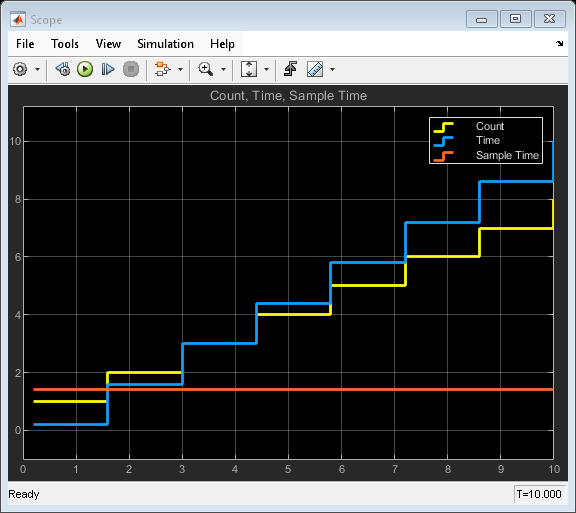MATLAB System
在模型中包含 System object
库:
Simulink /
User-Defined Functions
HDL Coder /
User-Defined Functions
描述
MATLAB System 模块将现有的 System object(基于 matlab.System)添加到 Simulink® 中。它还允许您使用 System object API 为 Simulink 开发新模块。有关此模块的详细信息,请参阅使用 MATLAB System 模块和 System object 创建自定义模块。
对于解释执行,模型使用 MATLAB® 执行引擎进行模块仿真。
对于代码生成,模型使用代码生成进行模块仿真(使用代码生成支持的 MATLAB 代码子集)。MATLAB System 模块仅支持 MATLAB 中的部分可用函数。有关完整的函数列表,请参阅 C/C++ 代码生成支持的函数和对象。这些函数包括那些常见类别的函数,例如:
默认情况下,模块识别一维输入信号,并将一维输出信号作为二维信号进行传播。使用 supports1DVectorsImpl 方法使模块能够将一维输入和输出作为一维信号进行识别和传播。
从 R2025a 开始,该模块在其输入端口和输出端口支持无界可变大小信号。有关无界可变大小信号的详细信息,请参阅Unbounded Variable-Size Signals。
System object
要使用 MATLAB System 模块,您必须先创建新的 System object™,或者使用现有的 System object。有关详细信息,请参阅使用 MATLAB System object 创建模块。



